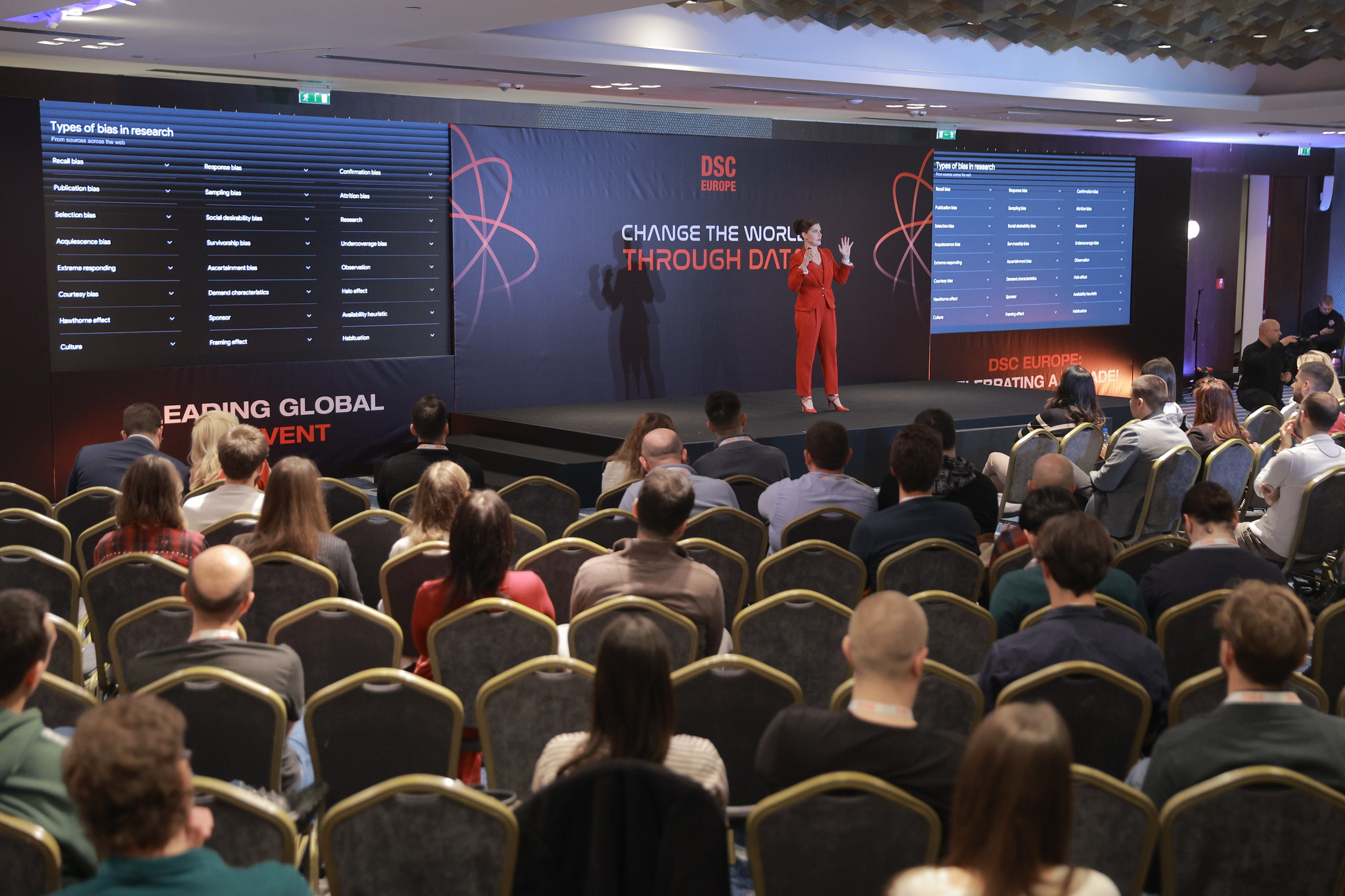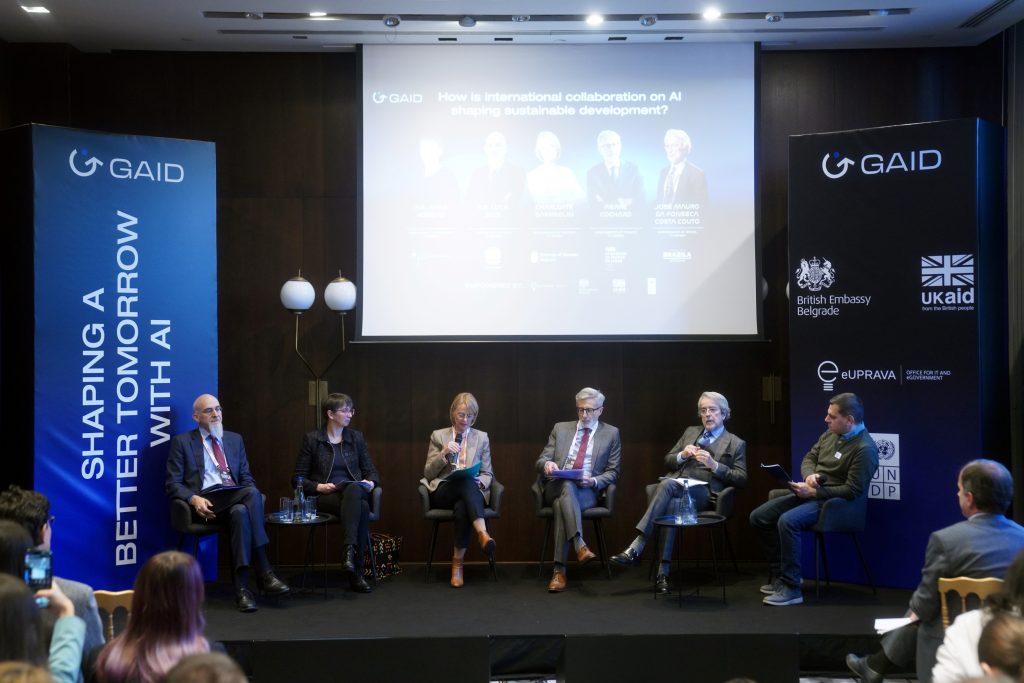Belgrade, November 20-22, 2024 – The Data Science Conference (DSC), one of the largest technology and data science conferences in Europe, gathered numerous experts in artificial intelligence and data analytics this year. The event was organized by Data Universe, with key partners including the United Nations Development Programme (UNDP) and the Office for IT and eGovernment, through the project “Open Data for an Open Society”, supported by the British Embassy.
The goal of this support was to increase the participation of women among the speakers at the conference, as well as to enhance the representation of topics from a female perspective (such as gender bias in data and AI applications). Thanks to this partnership, the percentage of female panelists and keynote speakers rose from an average of 20% in previous years to 27% in 2024, the highest percentage so far. A particularly significant achievement was the equal distribution of female speakers throughout the program, avoiding the creation of panels with only female participants and female audiences. This approach ensured that men also engaged in discussions on these important topics.
Fifteen female speakers addressed key issues related to gender equality and gender aspects in data science through their presentations and panel discussions. One of the prominent speakers was Karen de Soussa Pessi, a senior manager at Salesforce, known for advocating greater inclusion of women and girls in STEM fields (science, technology, engineering, and mathematics) and raising awareness about gender bias in AI systems. Another notable speaker was Andreja Gluščević, coordinator for standardization and open data at the Office for IT and eGovernment, who spoke on the topic “Data as a Key Ingredient in AI Transformation.”
Additionally, DSC hosted a panel discussion where ambassadors and senior officials from Sweden, Brazil, Germany, France, Italy, the United Kingdom, the European Union, and UNDP discussed “How International Cooperation in Artificial Intelligence Shapes Sustainable Development.” The ambassadors shared their countries’ experiences in utilizing AI and highlighted priority areas for its future application to benefit citizens, with a special focus on gender perspectives in AI development and implementation.

